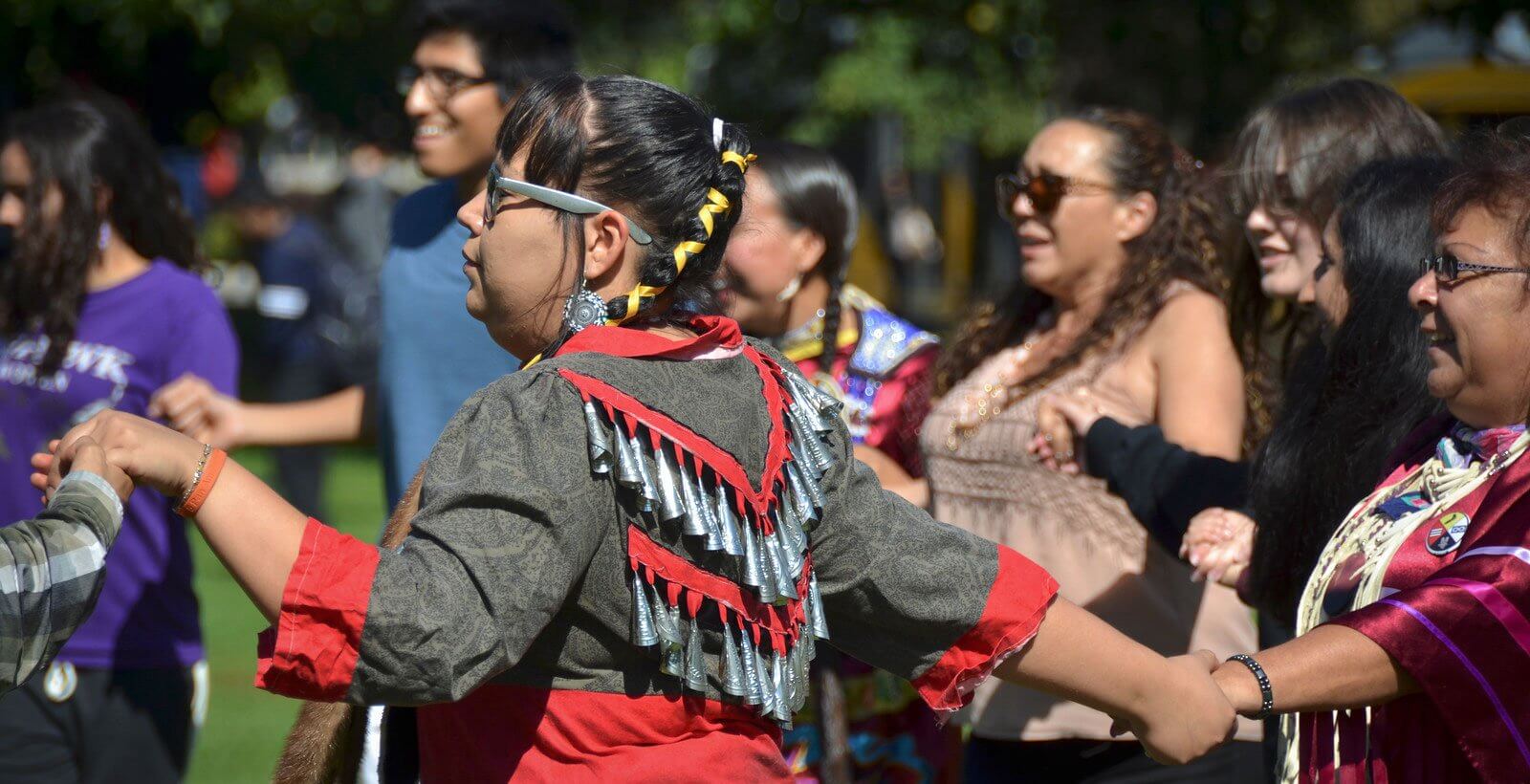Whether you come from near or far, consider getting involved with the local Indigenous community in order to make the most of your time here at McMaster. Everyone is welcome! Download our current Community Agreement (you may also view it directly below).
The Cooperative of Indigenous Studies Students & Alumni (CISSA) was developed as a means to further promote and support Indigenous peoples, knowledge, and culture. Their mission is to raise awareness of Indigenous issues within the McMaster, Hamilton, and Six Nations communities and to foster a sense of welcoming and belonging to all Indigenous learners and Indigenous Studies students.
The Indigenous Student-Athlete Council has the goal to support Indigenous athletes within the McMaster community.
Follow us on instagram at mcmaster.isac
The Indigenous Health Movement, founded in 2016, is an interdisciplinary, student-run initiative that works to educate students and community members on topics surrounding Indigenous health, with the goal of initiating reconciliation in this area. Throughout the school year, the Executive Team of Indigenous and non-Indigenous students plans Learning Circle workshops, panel discusssions, as well as outreach initiatives with local Indigenous organizations. The main event of the year is the annual Indigenous Health Conference, which has continually hosted renowned speakers from around the world and thought-provoking topics including climate change, traditional medicine and racism in healthcare.
Follow us on Instagram at mcmasterihm
The American Indigenous Science and Engineering Society, The voice for Indigenous Peoples in STEM at McMaster University.
Follow us on Instagram at mcmasteraises
McMaster Indigenous Graduate Students (MIGS) was formed to support Indigenous graduate students who are attending McMaster, and to create opportunities for scholarly dialogue and collaboration regarding research interests and shared common experiences related to graduate-level education. Contact migs.mcmaster@gmail.com for more information.
Since its inception, the Indigenous Studies Department (ISD) has incorporated a very unique teaching structure of Indigenous knowledge which involves Indigenous peoples and Elders. This unique perspective assists all students in learning about the history and lives of Indigenous peoples from an Indigenous perspective. The faculty and staff who work within ISP are dedicated to educating others and ensuring the success of our students.
The Indigenous Health Learning Lodge (IHLL) Student Services (formerly the Indigenous Students Health Sciences (ISHS) office) is solely dedicated to providing services, supports and programs for the academic success and wellbeing of all First Nations, Inuit and Métis students in the Faculty of Health Sciences at McMaster. Examples of our programming include Elders in residence, mentorship, graduate/professional development, student leadership, and community collaborations. IHLL also engages with broader Indigenous communities and knowledge shares with non-Indigenous students, staff, faculty, and departments interested in Indigenous health.
McMaster’s Indigenous Education Council (IEC) is the primary body responsible for promoting and advocating for the advancement of Indigenous education at McMaster, championing the needs of Indigenous students, staff and faculty members, and providing advice to the University on all Indigenous matters. Meetings are open to the public and there are opportunities for students and community members to sit on the council.
The McMaster Indigenous Research Institute (MIRI) is a world-class facility recognized for its leadership in the field of Indigenous research. The overarching priority of MIRI is to foster research excellence and best practices for all Indigenous related research across McMaster.
Grand River Post Secondary Education Office (GRPSEO) provides financial education assistance for students looking to continue their education at a post-secondary institution.
The Hamilton Regional Indian Centre (HRIC) assists Indigenous people living in an urban environment by sponsoring programs that maintain Indigenous traditions and culture. The Centre holds events such as traditional teaching and craft workshops.
Native Women’s Centre provides safe, emergency shelter for all women regardless of age, ancestry, culture, place of origin or sexual orientation with or without children who are experiencing crisis in their lives due to family violence, homelessness, or conflict with the law.
The Metis Nation of Ontario (MNO) organizes social events and gatherings based in Metis culture and the promotion of health and wellness. Contact the Hamilton branch for more information on local events.

